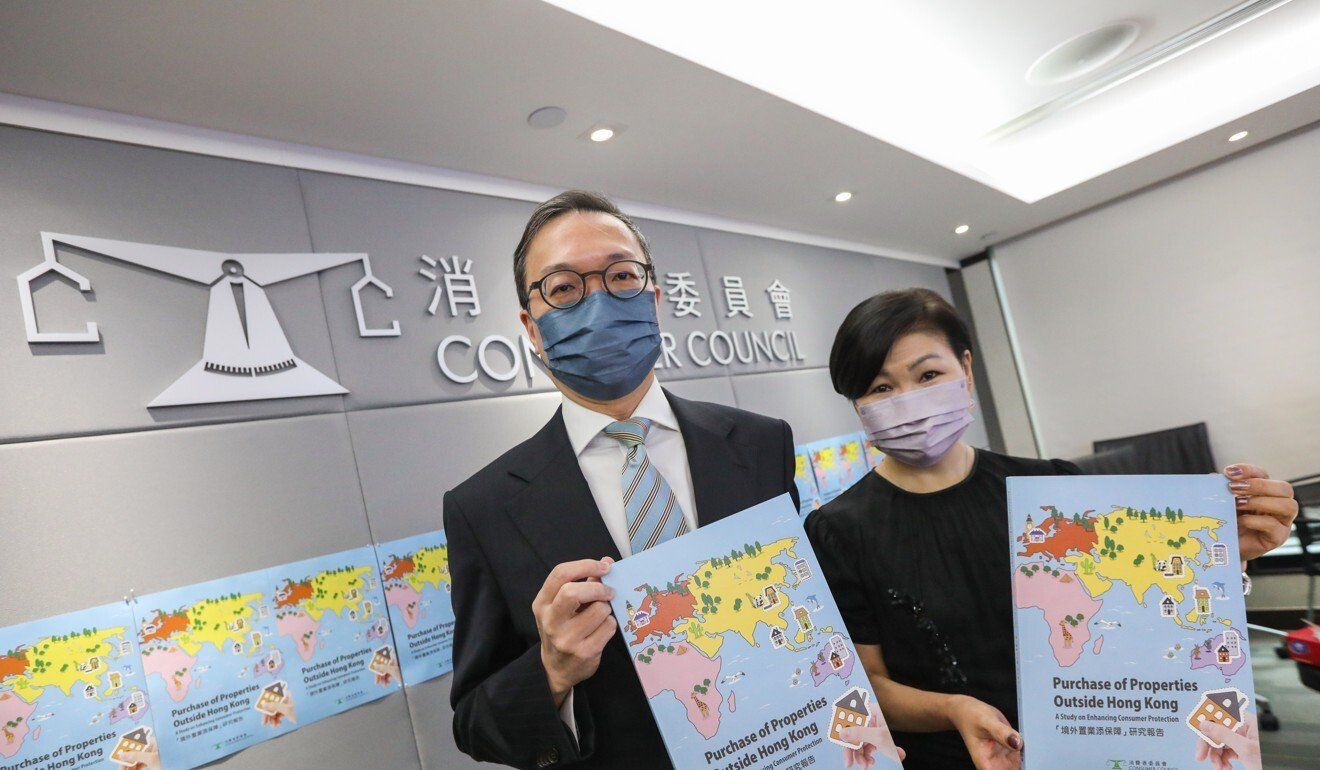
Hong Kong property agents selling homes overseas ‘should inform buyers of risks’
Property agents selling homes overseas should be made responsible for ensuring people have enough information to decide whether the investment is worth the risk even if the government has no control over foreign developers, Hong Kong’s consumer watchdog has said.
Speaking in a televised interview on Sunday, Consumer Council chairman Paul Lam Ting-kwok stood by a council report released on Thursday calling on the government to start licensing local property agents, following a sharp rise in disputes and growing demand for bricks and mortar investments in other countries.
“We know that it’s high risk buying property overseas. There are always factors beyond our control,” Lam said. “That is why residents must have complete and accurate information and reminders about the risks they could be facing [so they can] make an educated decision.”
The council’s proposal drew a lukewarm response from the Transport and Housing Bureau on Thursday, with a spokesman saying that licensing agents would not solve the root of the problem, which lay with developers overseas it had no authority over.
 Consumer Council chairman Paul Lam (left) and chief executive Gilly Wong Fung-han.
Consumer Council chairman Paul Lam (left) and chief executive Gilly Wong Fung-han.
But Lam suggested the bureau had missed the point. Hong Kong officials having no jurisdiction over foreign developers did not mean that local agents could sell property in an irresponsible manner, he said.
“The agents have a responsibility to know the background of the developers, as well as local regulations on property rights and restrictions on foreign buyers,” he said.
Those who deal solely with property outside the city do not need to have a licence, meaning they cannot be sanctioned by the Estate Agents Authority in the event of any misconduct.
The number of complaints relating to the sale of overseas and mainland China properties rose to 56 last year from 35 in 2017, a 60 per cent rise, according to new figures from the council.
Twenty-four complaints were logged in the first eight months of this year. The watchdog received 261 complaints between 2017 and August last year.
Buyers said they were often given misleading or inaccurate information, while others saw key documents being omitted and faced difficulties getting back refunds for reservation fees or deposits.
Lam said members of the council’s legal team who had posed as buyers had found agents trying to sell them property they said was located in Bangkok, but rather than referring to Thailand’s capital city itself, the complex was located in the Bangkok Metropolitan Region, the larger administrative area surrounding the capital, and dozens of kilometres away from the city centre. There were also similar cases related to other large cities such as London, he added.
Other incidents included a property agent who had simply guessed at the meaning of a Japanese property flier by reading the Kanji characters, which are based on Chinese script and part of the Japanese writing system.
 Paul Lam said buyers should know which questions to ask, but agents should also provide the information if they do not.
Paul Lam said buyers should know which questions to ask, but agents should also provide the information if they do not.
Separately, he revealed his wife had also posed as a buyer, and the agent had shown her property in Malaysia.
“While the agent had not been a problem, she said [buying overseas property] really depended on whether the consumers know what questions to ask,” he said.
Lam said prospective buyers should ask their agents about financial arrangements such as local tax regulations, as well as the financial background of the developers.
They should also have clarity on the exact location of the property they are interested in, to avoid buying homes that are far from convenient or not close to the city centre.











